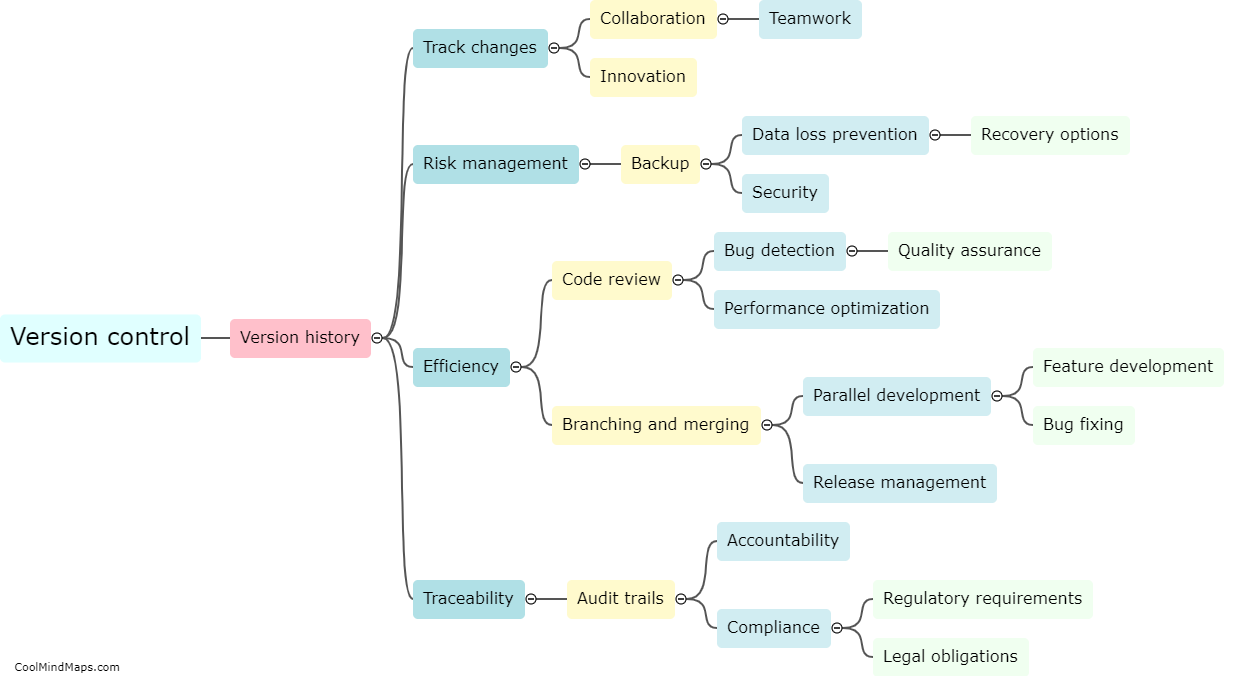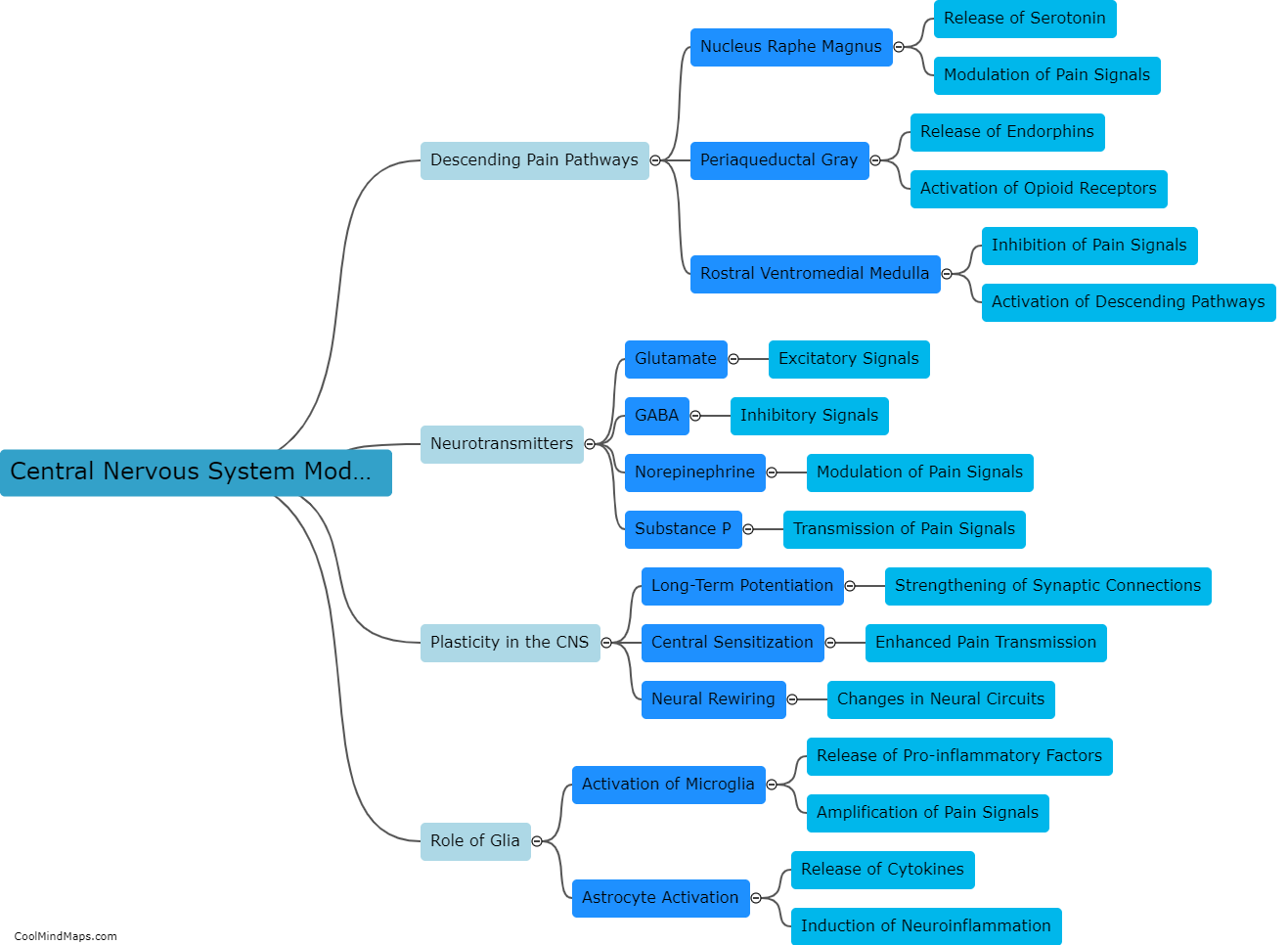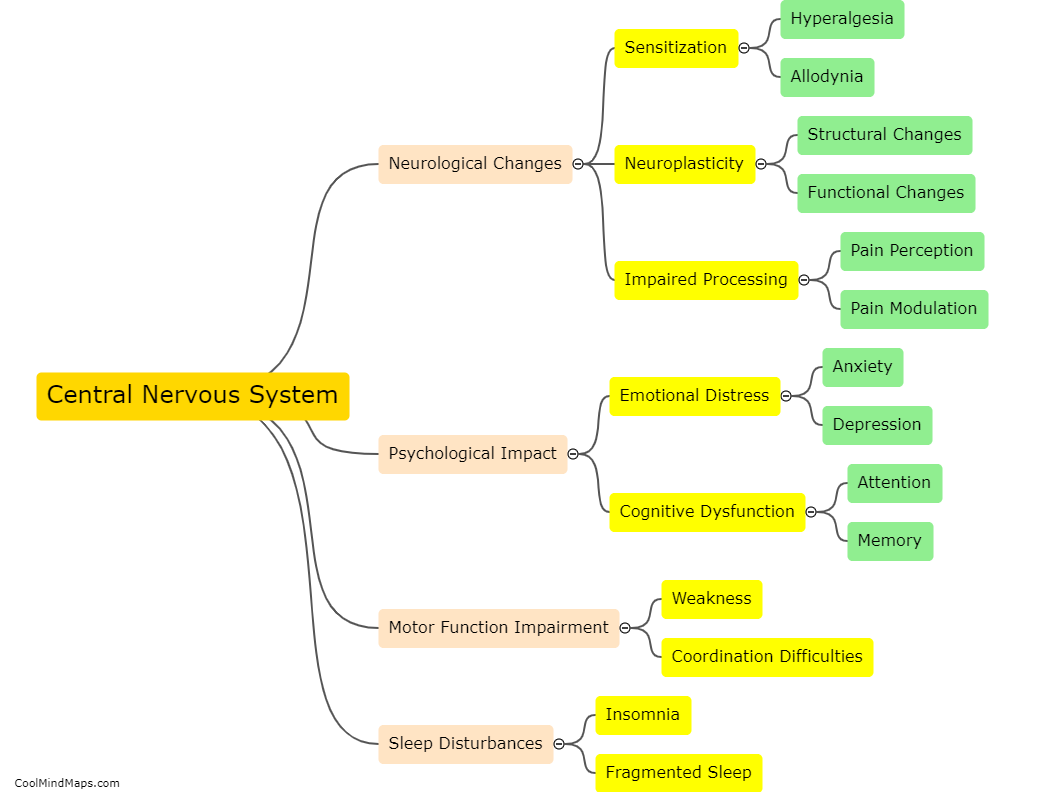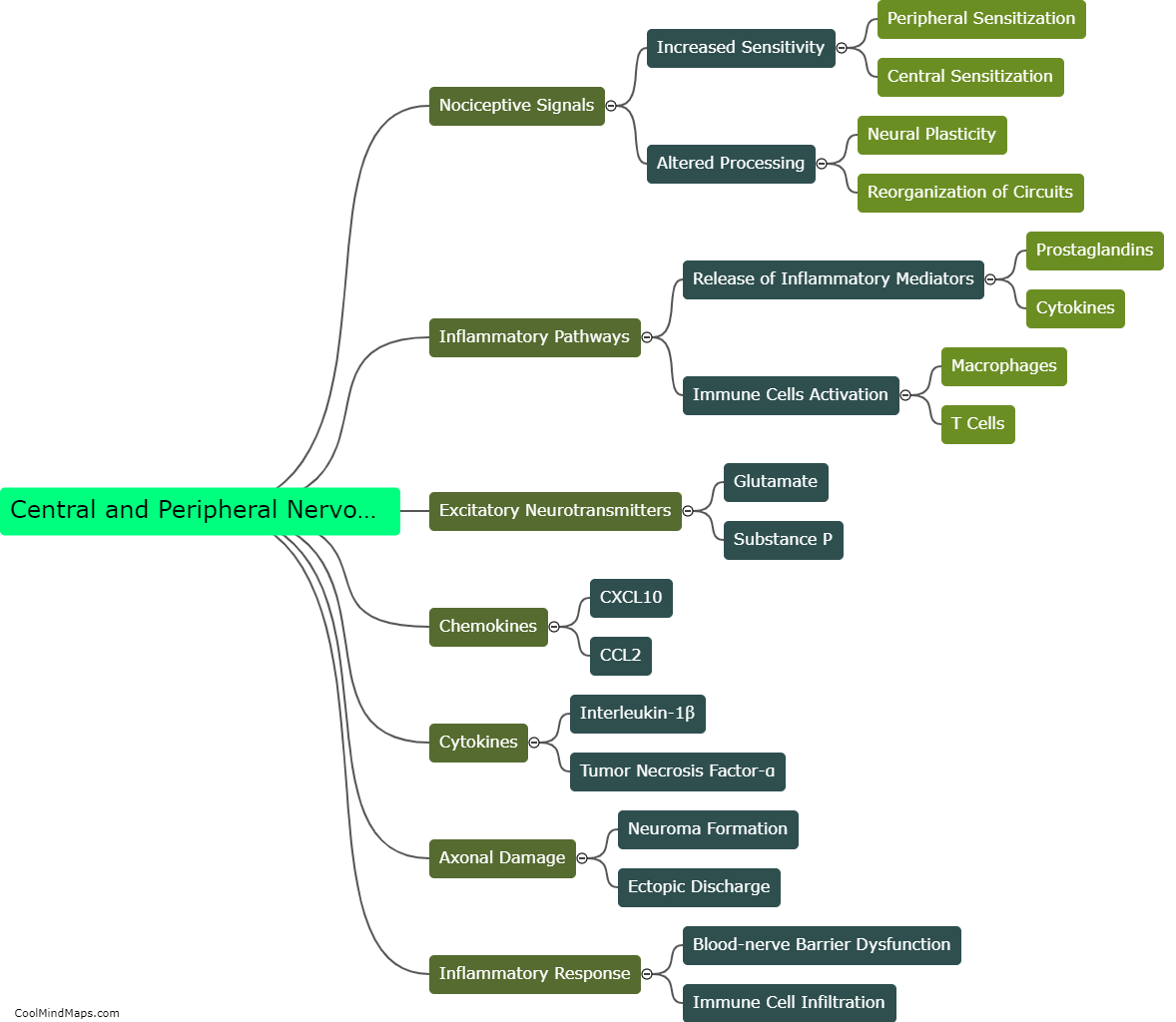What is the role of the central nervous system in chronic pain?
The central nervous system (CNS) plays a critical role in chronic pain processing. When exposed to prolonged and intense pain, the CNS undergoes various changes that can amplify the perception of pain. These changes occur in both the peripheral and central branches of the nervous system. In chronic pain, the CNS becomes hypersensitive, resulting in heightened pain sensitivity and increased pain responses. This hypersensitivity is mostly due to neuroplastic changes, such as neuronal hyperexcitability, synaptic alterations, and changes in neurotransmitter release. Additionally, the CNS also plays a role in the emotional and cognitive aspects of chronic pain, contributing to the development of conditions like anxiety, depression, and cognitive impairments. Understanding the role of the central nervous system in chronic pain is crucial for developing effective treatments and interventions targeting the root cause of pain.
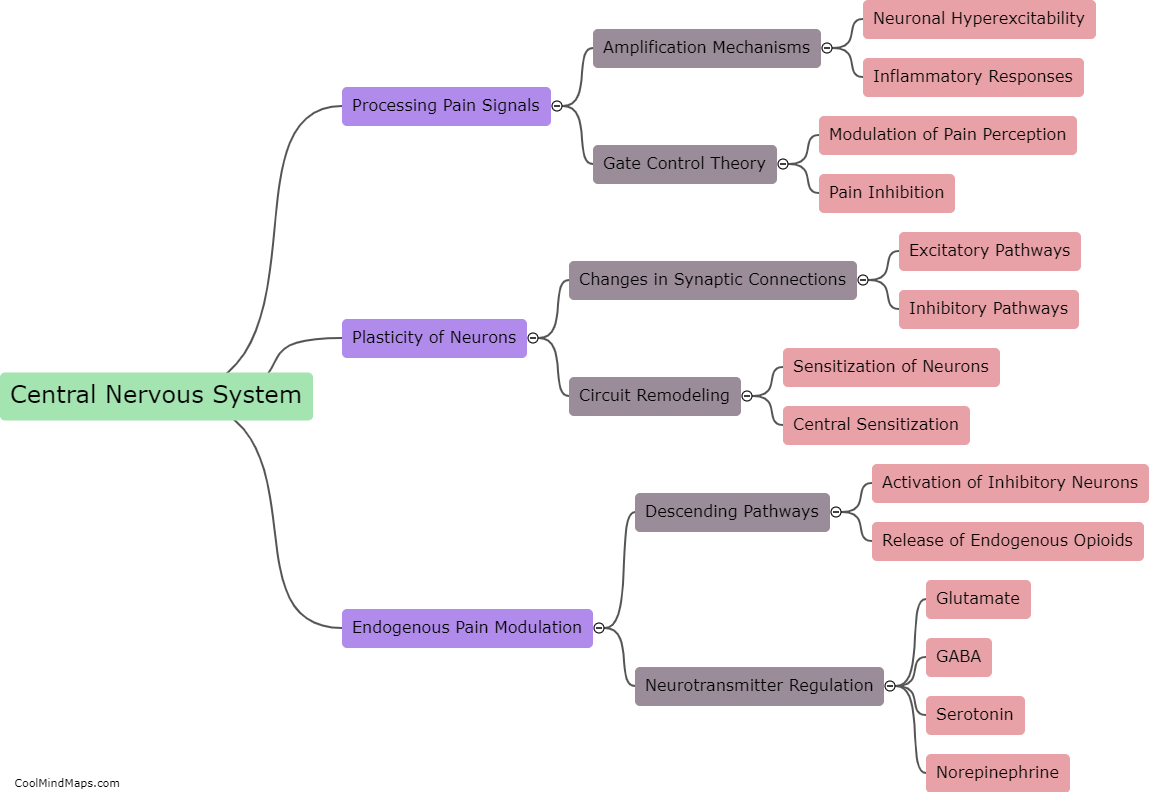
This mind map was published on 2 December 2023 and has been viewed 87 times.
